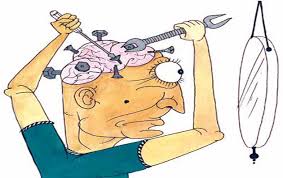Why This Young Black Woman Stopped Hating the Police
After the Freddie Gray killing in 2015, there was a great deal of anti-police sentiment in communities all over America. One of the accusations heard repeatedly was that the police were “systemically racist.” And the most-often cited evidence for it was the fact that Blacks die from police shootings at a disproportionately higher rate than their percentage of the population (12% or 13%). In an essay I posted at the time, I pointed out that there was a problem with this arithmetic. A denominator problem, I called it. It’s the same problem that was responsible for the miscalculation of the mortality rate of COVID when that first broke.
When it comes to getting arrested, studies show that being a young Black male puts one at a greater risk of harassment and intimidation than being a Black female or a white man or woman. But those same studies show that it is not true of one’s chances of being shot and killed by police. Those chances are smaller.
I was surprised to learn this when I read about it for the first time. I was also surprised to learn that the person that headed up the largest study of this kind was a Black sociologist from Harvard. In this clip, a young Black woman talks about making the same discovery.




